Bed-Stuy’s First Starbucks Prioritizes Job Training, Community Space
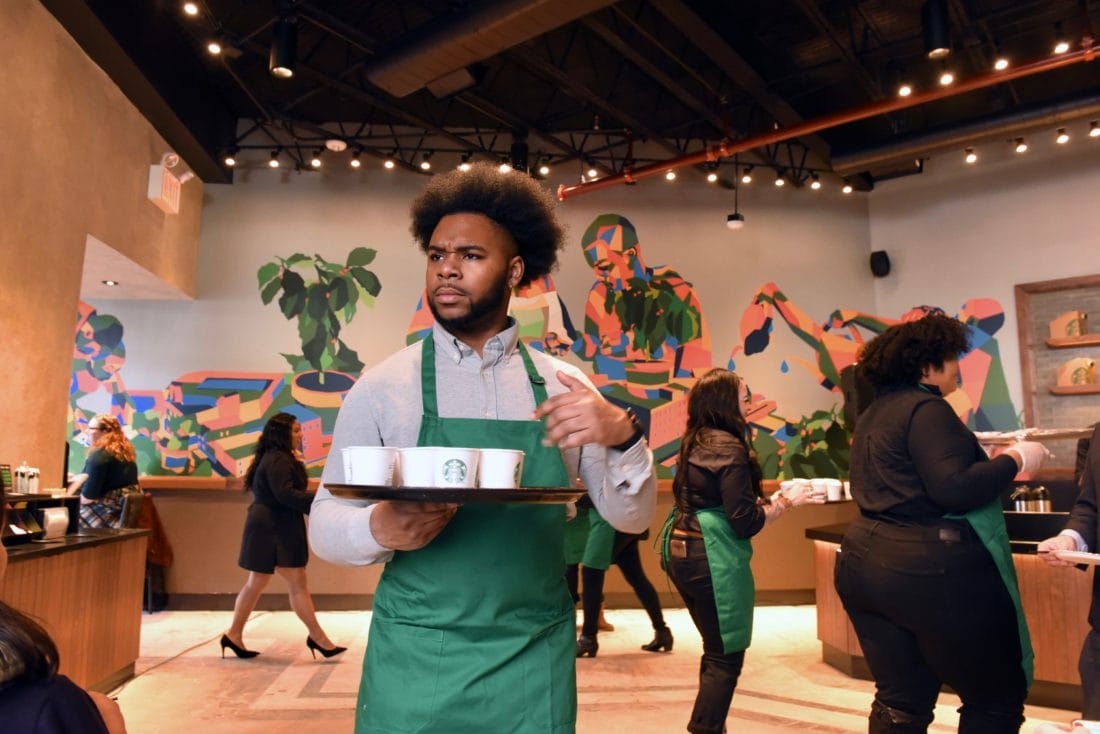
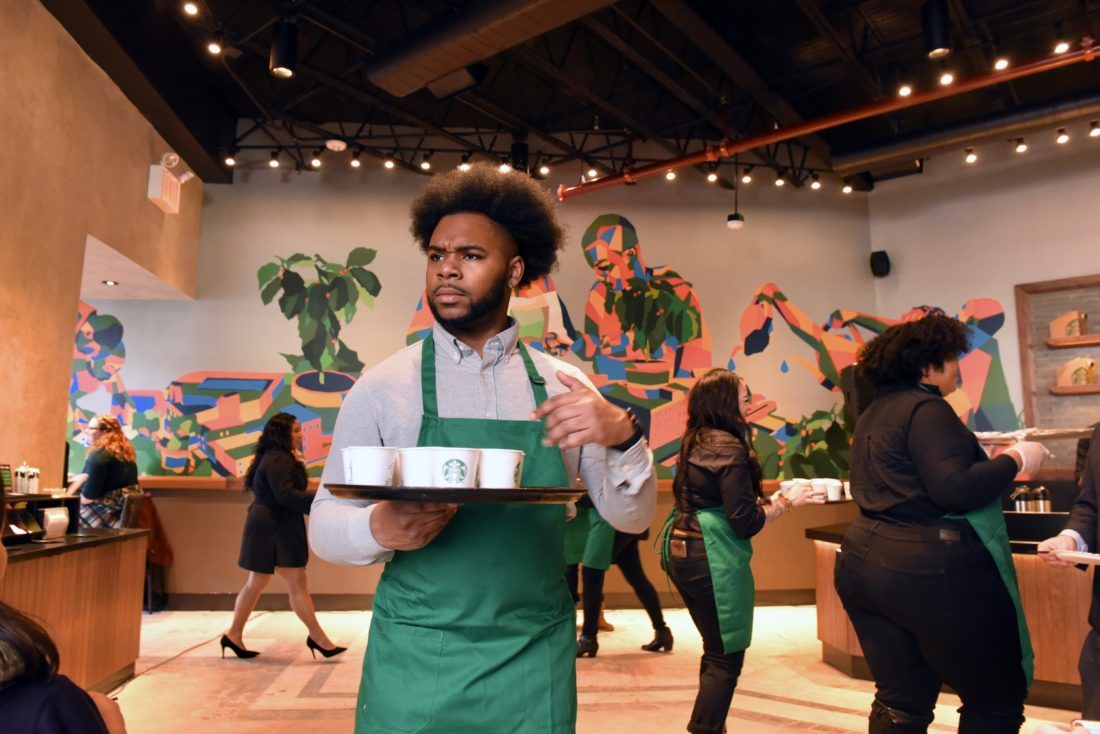
BED-STUY -Starbucks, often seen as synonymous with corporate expansion and gentrification, is coming to Bed-Stuy—and so far, it’s being welcomed with open arms. The global coffee chain is bringing its first location to Bedford-Stuyvesant, using a model that will employ 95% local residents at the store and reserve space for community programming and job training.
The new location, 774 Broadway, on the corner by Woodhull Medical Center, will be familiar to residents as the former location of Fat Albert—a warehouse clothing store where some of the current Starbucks employees remember shopping as kids. As the tide of gentrification knocks out discount stores like Fat Albert in favor of slick global retailers, terms like “corporate responsibility” have risen to the forefront. Both Starbucks corporate and local politicians were on hand to reassure those present that the company would serve the community.
Two employees led those gathered in a coffee tasting to start things off, pairing the Guatemalan blend with a flan that they’d made with ingredients purchased in the neighborhood. “My mom helped me make the flan,” one of them joked.
Local Councilmember Robert Cornegy (D-36) was present to welcome the new business, praising Starbucks’ commitment to women and minority contractors in their construction of the new shop. A spacious, concrete affair, the large, open shop features bright murals from a local artist in the 2,500 square foot location.
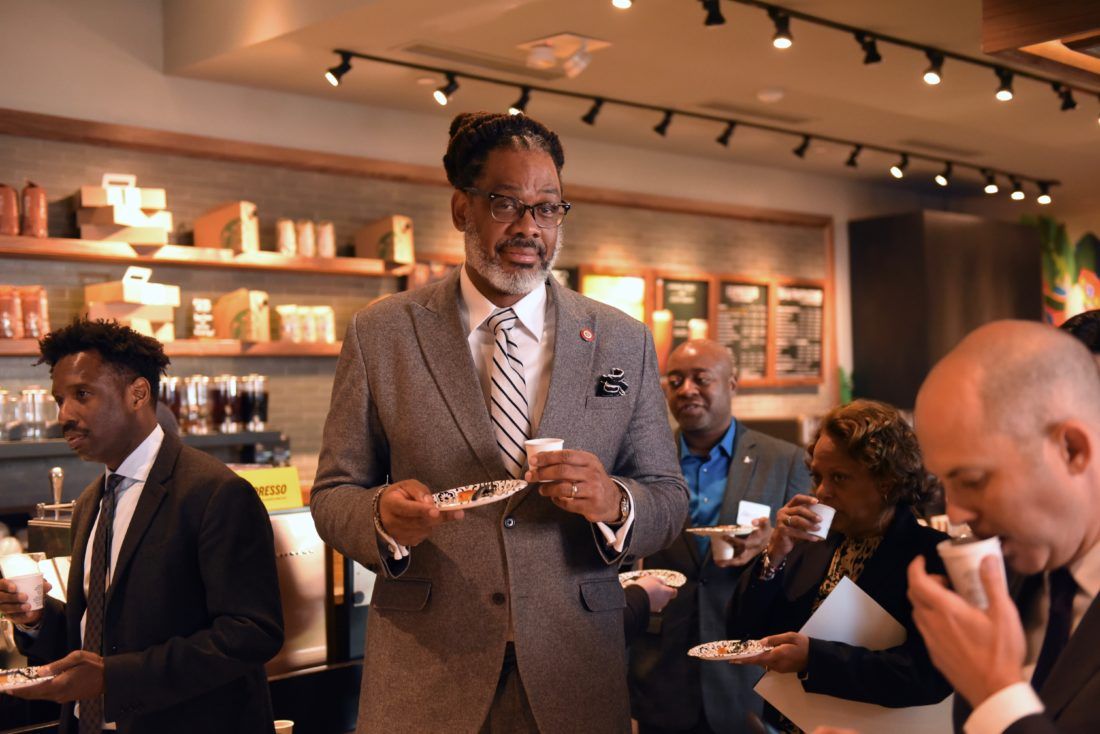
“Art and culture is the lifeblood of the community,” said Cornegy, who wants to preserve Bed-Stuy’s distinct culture as gentrification changes the neighborhood. Aware of the negative press surrounding a new corporate player in his district, Cornegy said “Starbucks is a welcome addition and a model for other businesses,” citing their local hiring practices and commitment to job training.
A conference table with 12 chairs dominated a large space on the floor of the building, with a projector overhead and bright windows looking out to the street. In a few weeks, glass walls will enclose the space into a community space. The Hope Program, a Brooklyn-based job-training NGO, will conduct multi-week programs over the course of a year, training local 16- to 24-year olds in financial literacy, job skills and interview prep as they strive to enter the workforce and lay foundations for stable careers.
When not in use for training, the space will available for use by the community and local artists—hosting performances from musical acts to spoken word.
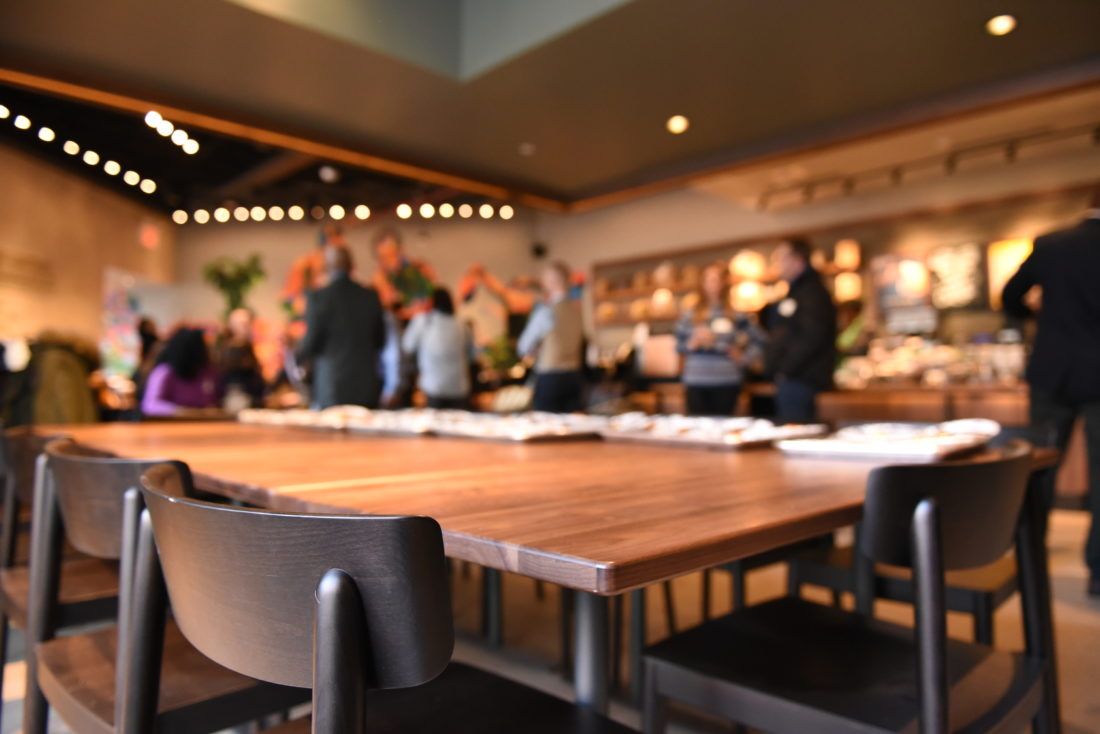
Bed-Stuy’s new, community-focused Starbucks is one of 10 similar locations spread across the U.S. The inaugural location opened in Jamaica, Queens two years ago.
“Three years ago, we began grappling in a deeper was with corporate responsibility,” said Rodney Hines, Director of Social Impact for Starbucks. “We have to be thoughtful about where Starbucks fits into a community.”
Hines called several of the “partners” (Starbucks’ word for employees) by name, speaking to how their futures were part of the corporate goal: to become a chef, to become a brand manager, to send a child to Columbia—that the point of employing locally was to empower community members.
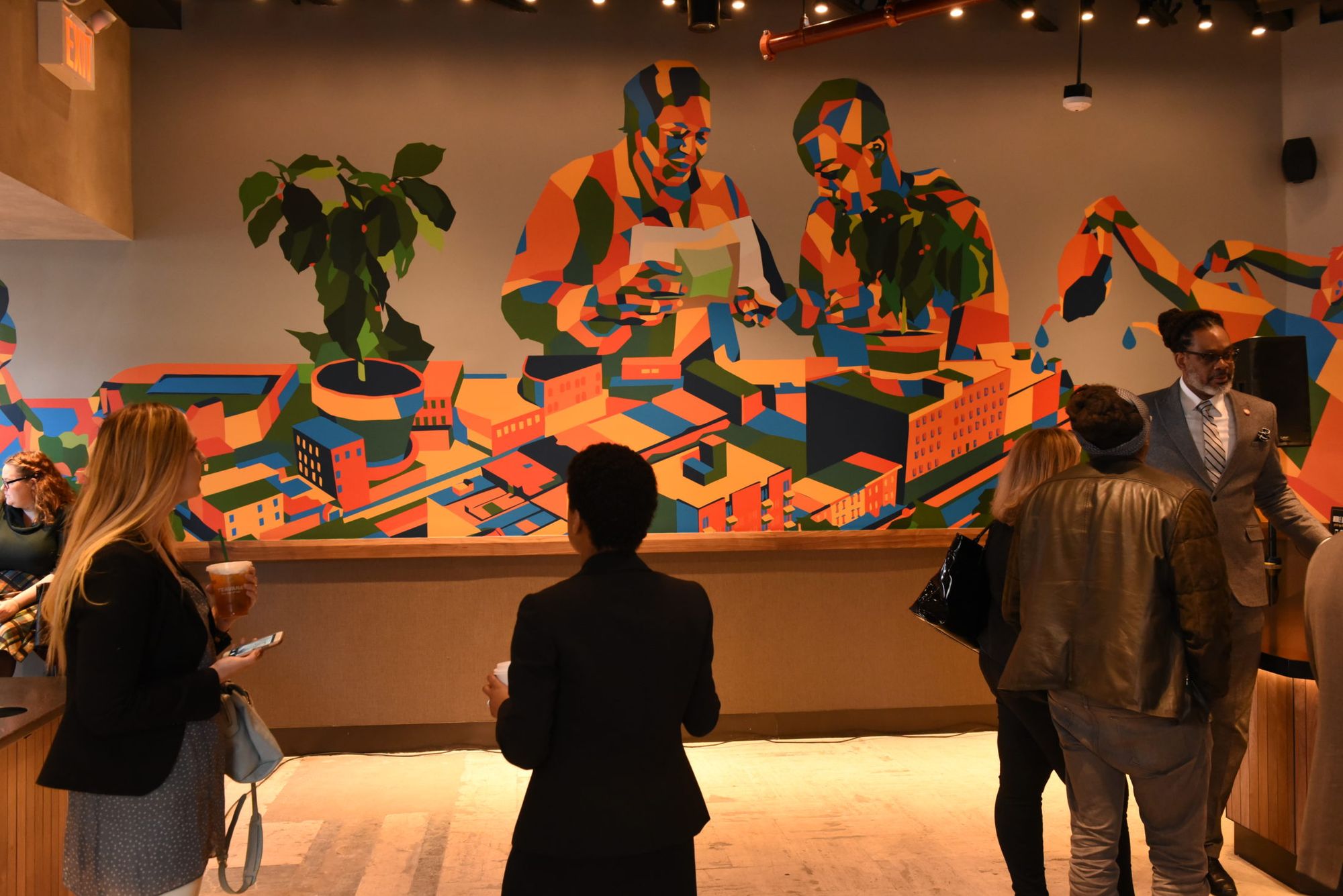
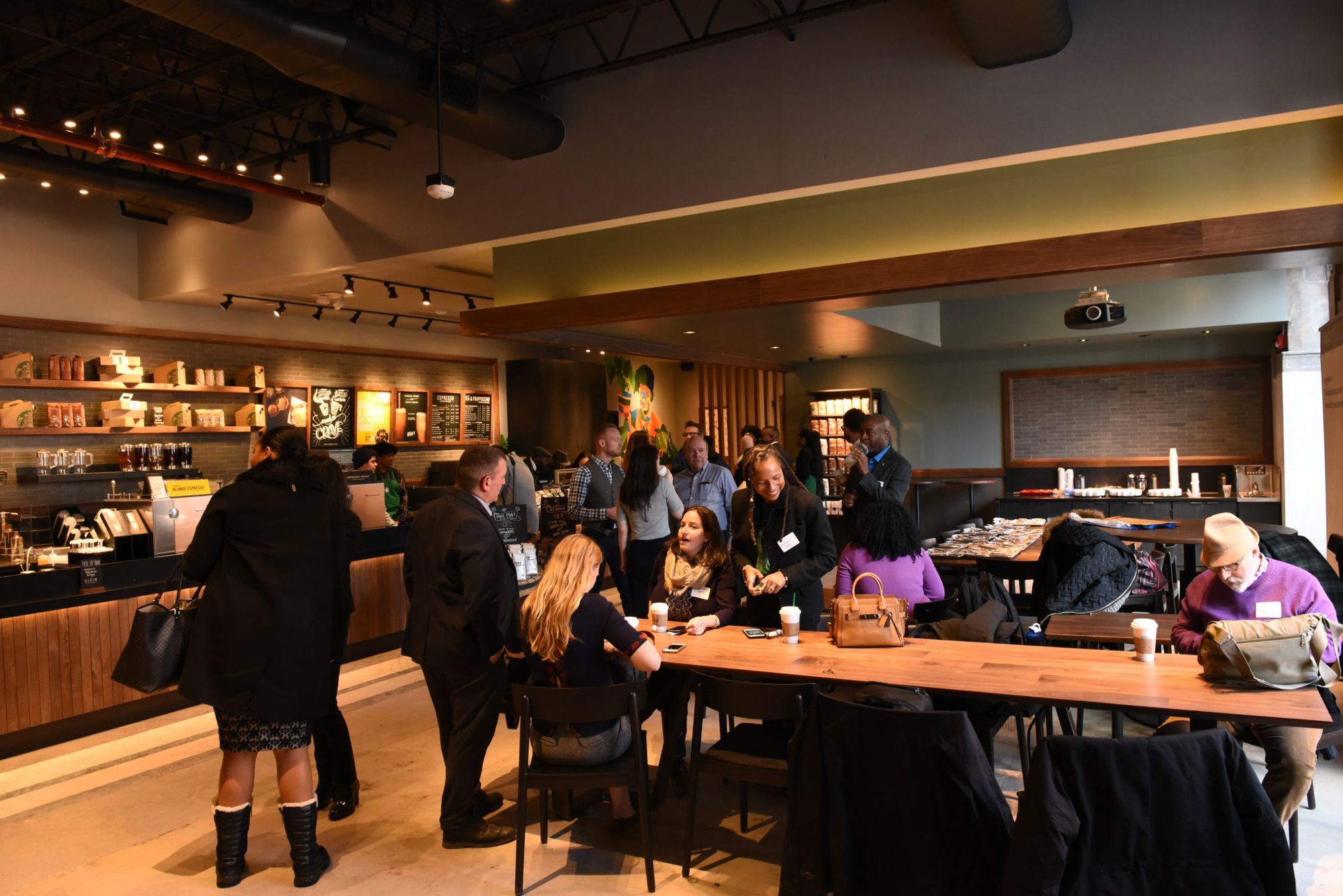
Of the 17 employees, almost all of them are from the neighborhood, said Juanita Vasquez, the store manager. Vasquez grew up in Brownsville, but fondly recalls coming to the neighborhood and the nearby Avenue of Puerto Rico with her family on weekends.
It remains to be seen what impact a major retailer will have on the mom and pop shops in the area, or if it will pull traffic from Woodhull Hospital employees when it finally opens, but as inevitable changes come to Bed-Stuy, community-focused corporate players are a hopeful start.




